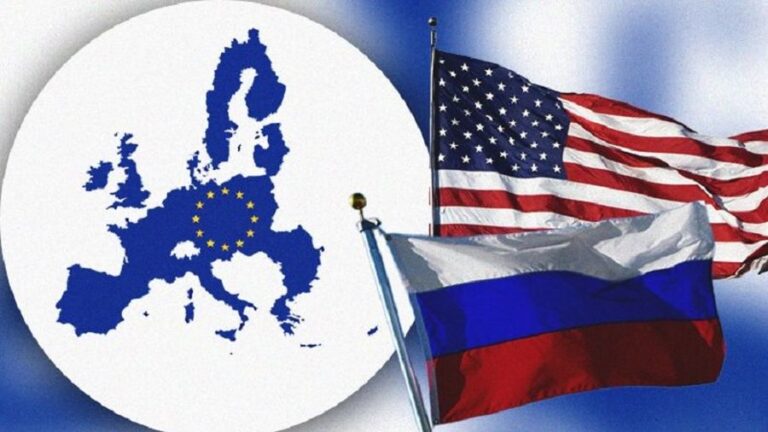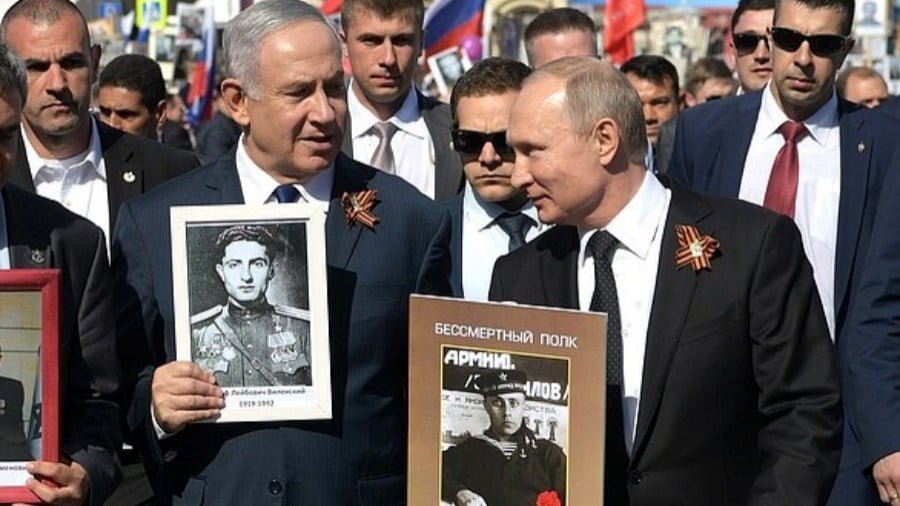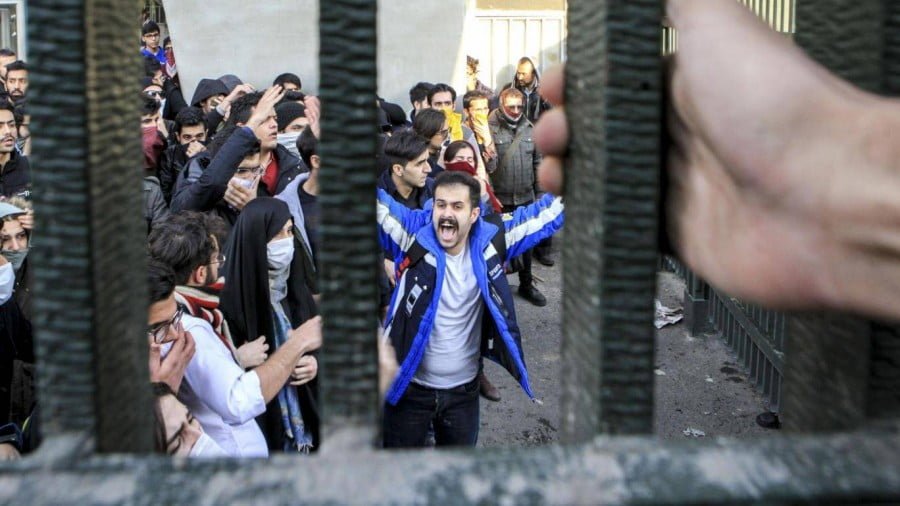The Latest Hybrid War on Brazil Is Being Waged by Putatively Pro-Lula Forces
The second Hybrid War on Brazil is actually the result of an undeclared intra-PT power struggle that was initiated by supporters of the “New Lula” against the party’s base of supporters who still think he’s the “Old Lula”, the outcome of which will determine Brazil’s trajectory in the New Cold War. It’ll either continue moving in a US-aligned direction amidst the impending trifurcation of International Relations or will recalibrate closer towards the Sino-Russo Entente and/or Global South.
Clarifying The Meaning Of Hybrid War
The first Hybrid War on Brazil was waged by President Lula’s opponents in order to carry out a regime change against his Workers’ Party (PT), which makes the latest Hybrid War on Brazil all the more intriguing since it’s being waged by putatively pro-Lula forces for regime reinforcement purposes. Before proceeding, a clarification about the preceding terminology is in order so as to avoid any misunderstandings about the way in which the present state of affairs is being described.
What’s meant by Hybrid War is the unconventional manipulation of a targeted state’s socio-political processes in order to advance the practitioners’ agenda. As regards the word “regime” in the terms “regime change” and “regime reinforcement”, this simply refers to the government and isn’t being employed in the way that Western propagandists have weaponized it for delegitimizing the authorities. With this in mind, the observation of there being two Hybrid Wars on Brazil makes more sense.
The First & Second Hybrid Wars On Brazil
The first was orchestrated by the US via “Operation Car Wash” in order to remove the PT through a lawfare-driven post-modern coup as punishment for its comparatively much more multipolar foreign policy at the time. The second, however, is being waged on the independent prerogative of putatively pro-Lula forces in order to manipulate perceptions among the PT’s base about Lula’s comparatively much more US-aligned foreign policy during his third term so as to preemptively avert internal dissent.
The first Hybrid War on Brazil relied on supposed anti-corruption revelations to set the lawfare dimension of that regime change process into motion, which then catalyzed a combination of independently organized protests against the PT as well as those organized by foreign intelligence agencies masquerading as “NGOs”. By contrast, the second Hybrid War on Brazil relies exclusively on weaponized conspiracy theories in order to prevent the PT’s base from protesting against Lula.
The Reality Of Lula’s Approach To The NATO-Russian Proxy War
“Lula Made It Clear In His Call With Zelensky That He’s Against Russia’s Special Operation”, which followed Brazil voting in support of an anti-Russian UN Resolution that in turn came shortly after he himself condemned Russia’s special operation in his joint statement with Biden in early February. Instead of remaining neutral towards the Ukrainian Conflict by abstaining like his fellow BRICS partners have done, he ordered his diplomats to openly align with the US on this sensitive issue.
“Lula’s Recalibrated Multipolar Vision Makes Him Amenable To The US’ Grand Strategic Interests”, as explained in the preceding hyperlinked analysis and proven by his policy towards the NATO-Russian proxy war in Ukraine. Readers can learn more about that by reviewing the works cited in this piece. The point is that his policy towards this conflict isn’t what the PT’s base expected, which hoped that he’d reverse his predecessor Bolsonaro’s stance of voting against Russia at the UN by abstaining instead.
The exact opposite is what ended up happening: Lula reversed his predecessor’s comparatively more neutral stance towards the NATO-Russian proxy war by unprecedentedly condemning Russia in his joint statement with Biden, which Bolsonaro didn’t do after his meeting with the US leader last summer. All pretense of neutrality that Brazil could have attempted to plead towards this conflict was discredited since Lula decided to buck the BRICS trend by becoming the first leader to officially condemn Russia.
The Conspiracy Theory About Lula’s Supposedly “Secret” Stance
His indisputably US-aligned approach towards the most geostrategically transformative conflict since World War II upset many among the PT’s base, especially since it raised concerns about everything else that this position could entail. For instance, it suggests that in the impending trifurcation of International Relations between the US-led West’s Golden Billion, the Sino-Russo Entente, and the informally Indian-led Global South, Brazil will align a lot closer towards the US’ bloc than towards those other two.
With a view towards preemptively averting internal dissent among its ranks, whether that which could be expressed through cyberspace in the form of social media criticisms or through the streets in the form of protests, putatively pro-Lula forces concocted a conspiracy theory about his stance. They insist in spite of the objectively existing and easily verifiable facts to the contrary that Lula “secretly” supports Russia’s special operation and all related public moves to the contrary are just him playing “5D chess”.
This conspiracy theory is basically a Brazilian knock-off of the one spun by the infamous QAnon alleging that every move Trump publicly made in the opposite direction of his base’s expectations was also him supposedly just playing “5D chess” to “psyche out” his opponents but that “only they” and not their rivals “know the truth”. Both are divorced from reality, were only concocted to preemptively avert internal dissent among the ranks of their supporters, and essentially function as “secular religions”.
The last-mentioned characterization is more on the nose than observers might initially realize. Just like the MAGA Movement’s base was so desperate to believe that their “hero” Trump was their “savior” who’d reverse all of his predecessor Obama’s policies that they hated, so too is the PT’s base so desperate to believe that their “hero” Lula is their “savior” who’ll reverse all of his predecessor Bolsonaro’s policies that they hated.
In reality, Trump ended up becoming the President who was hardest on Russia since the Old Cold War prior to the ongoing New Cold War reaching its latest phase under Biden after the onset of Moscow’s special operation. As for Lula, he abandoned Bolsonaro’s comparatively more neutral stance towards the NATO-Russian proxy war by unprecedentedly condemning Russia in his joint statement with Biden and thus becoming the first BRICS leader to do so. Both ended up disappointing their bases on Russia.
The Plot To Desperately Preempt Internal Dissent Within The PT
To be absolutely clearly, it’s unrealistic to imagine that the MAGA Movement’s base would have protested against Trump’s unfriendly policy towards Russia had they not been duped by QAnon’s “5D chess” conspiracy theory, nor would it have made any difference had they done so. The PT’s base is much more politically conscious and active so there’s indeed a chance that some might protest against Lula’s unfriendly policy towards Russia, however, and it could actually make a difference.
Even if their internal dissent remains within the realm of cyberspace, it could still have a noticeable impact on reshaping perceptions of Lula and this third term’s foreign policy, which could thus change the internal dynamics within the party over the long term. Those who concocted the conspiracy theory about his stance towards Russia, weaponized it against the PT’s base, and aggressively employ toxic ad hominem attacks against anyone who fact-checks them desperately want to avoid these two scenarios.
They’re literally waging Hybrid War against not only the same party which they claim to support, but against all Brazilians through the unconventional means with which they aim to manipulate their country’s socio-political processes via their disinformation campaign that was just described. While it can’t be ruled out that that high-ranking elements of the PT have encouraged or outright orchestrated these latest developments, that can’t be known for sure and thus remains purely speculation.
Indisputable Evidence That The Second Hybrid War On Brazil Exists
Nevertheless, the existence of this second Hybrid War on Brazil can’t be denied by any honest observer since it’s indisputably the case that this weaponized conspiracy theory is virally circulating across that country’s information ecosystem right now. Here are three examples from today, which were either laundered by “useful idiots” that fell for this disinformation about Lula’s approach towards the NATO-Russian proxy war or deliberately pushed by folks who consciously intended to mislead their audience.
A cult known as the “Workers’ Cause Party” (“PCO” per its Portuguese abbreviation) has also taken this conspiracy theory up as their top cause in an attempt to recruit new members and curry favor with the PT’s elite echelons, neither goal of which is guaranteed. The point is that the Hybrid War that was described in the present piece, which is fueled by the desperate political desire to preemptively avert internal dissent among the PT’s base, is actively being waged against Brazilians right now.
To remind the reader, this process can confidently be described as a Hybrid Warfare one since it veritably concerns unconventional means for manipulating the targeted state’s socio-political processes in order to advance the practitioners’ agenda, which was just summarized above. Unlike the first Hybrid War on Brazil, it’s not orchestrated by any external party, doesn’t aim to provoke protests, and has no intention to advance regime change against the PT.
“New Lula” Supporters vs. “Old Lula” Supporters
Rather, this second Hybrid War on Brazil is being waged on the independent prerogative of putatively pro-Lula forces (presuming that high-ranking PT figures aren’t involved) to preemptively avert internal dissent among the PT’s base (including that which could take the form of protests) for regime reinforcement purposes. The reason why these operatives are described as only putatively being pro-Lula is because those who sincerely support him wouldn’t feel the need to lie about his positions.
A true believer would always aspire to accurately articulate his policies, even those that they might disagree with, instead of manipulate others’ perceptions about them, let alone those of the PT’s base. Responsibly voiced contrarian views via constructive critiques such as the present piece could lead to meaningful changes for the better or at least somewhat shape the parameters for long-overdue debates about sensitive issues like Lula’s “politically inconvenient” approach to the NATO-Russian proxy war.
What’s instead happening is that political opportunists (again presuming that elite ruling party figures aren’t involved) are preventing this from happening out of fear that the resultant socio-political processes within the PT could eventually result in recalibrating Lula’s foreign policy. They truly support the “New Lula” as embodied by his comparatively more US-aligned approach during his third term as opposed to the “Old Lula” who most of the PT’s base seemingly still thinks that he is.
Reconceptualizing The Second Hybrid War On Brazil
This insight (irrespective of speculation that high-ranking PT figures have a hand in this latest Hybrid War) enables observers to reconceptualize everything as an intra-PT power struggle aimed at manipulating the party’s base into ignoring indisputable evidence that his worldview has changed. What these operatives don’t realize is that even his base’s awareness of this regrettable reality wouldn’t lead to them abandoning support for Lula since their fierce hatred of Bolsonaro makes that impossible.
Understood in this way, it can therefore be said that the forces behind this latest Hybrid War on Brazil are pro-Lula in the sense that they support the “New Lula”, while the PT’s base is also pro-Lula too but mostly because they support the “Old Lula”. The second-mentioned majority of his supporters definitely wouldn’t ditch him for Bolsonaro or anyone else even upon learning that his worldview has changed, but they could still try to pressure him into recalibrating his foreign policy closer towards their expectations.
Objective Observations
From an outsider’s perspective, those supporters of the “New Lula” who are weaponizing conspiracy theories about his approach towards the NATO-Russian proxy war come off as having a guilty conscience since they expect that the PT’s base would reject this policy, hence why they’re lying to cover it up. What they should have done is articulate his new worldview and especially his stance towards this sensitive issue, thus initiating a comparatively controlled debate within the PT about it all.
By waging disinformation-driven Hybrid Warfare on their fellow party members in particular and the rest of their compatriots in general, these “New Lula” supporters are making a power play for control of the PT, which in turn can be described as a power play for control of Brazil’s foreign policy. They know they’re in the minority and that the majority of the PT’s base would reject the US-aligned direction in which Lula is taking the country, ergo why they’re resorting to Hybrid War to hold onto their power.
This observation lends credence to what’s presently the pure speculation about high-ranking party members’ complicity in the latest Hybrid War on Brazil, which arguably appears likely if one conceptualizes the analyzed socio-political dynamics – especially intra-PT ones – in this way. Their weaponized conspiracy theories are being wielded not for regime reinforcement per se since the PT’s base will never ditch Lula, but specifically to reinforce this ideological minority’s control over the party.
Concluding Thoughts
Considering this, the second Hybrid War on Brazil is actually the result of an undeclared intra-PT power struggle that was initiated by supporters of the “New Lula” against the party’s base of supporters who still think he’s the “Old Lula”, the outcome of which will determine Brazil’s trajectory in the New Cold War. It’ll either continue moving in a US-aligned direction amidst the impending trifurcation of International Relations or will recalibrate closer towards the Sino-Russo Entente and/or Global South.







